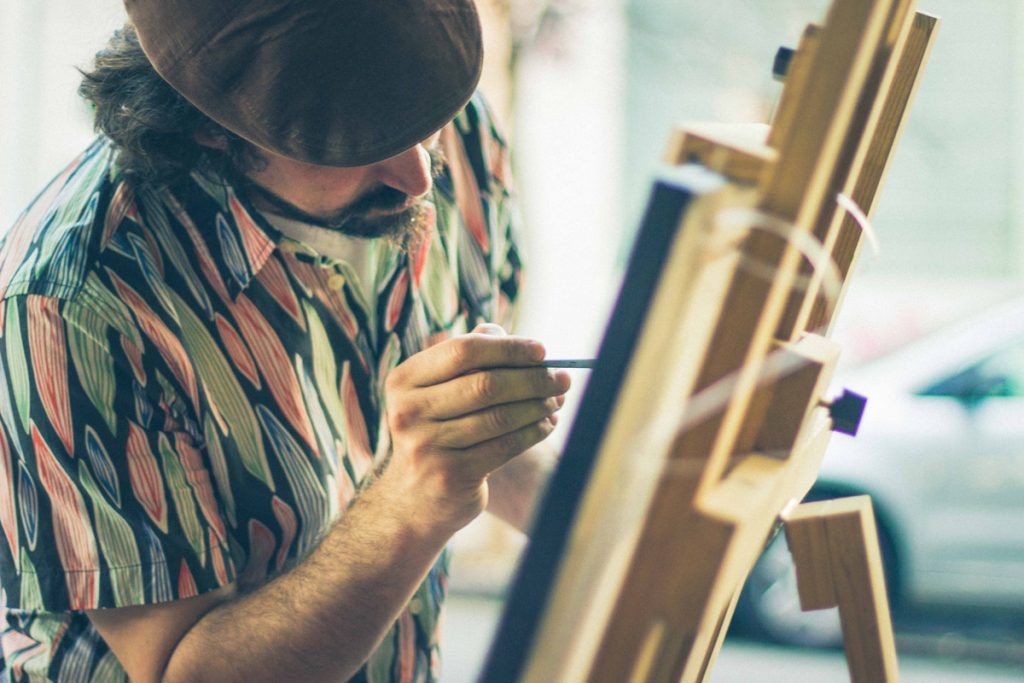If you or a loved one are dealing with post-traumatic stress disorder (PTSD), you know how difficult it is to go through every day. The trauma takes hold of a person’s thoughts and emotions, making life extremely difficult.
The prevalence of PTSD worldwide is about 3.9% of the general population. Those who deal with PTSD can turn to professional treatments. There are several types of therapies to help people manage symptoms of PTSD. These therapies help individuals with this condition cope and feel at ease with the environment, situation, and people around them.
Families can help loved ones with PTSD by introducing them to art therapy, among other options. This therapy is especially beneficial to people with PTSD since it occurs in groups. In this article, we’ll explore the benefits of group art therapy for loved ones.
Let’s begin.
What is PTSD?
PTSD, or post-traumatic stress disorder, is a psychiatric condition that develops from traumatic experiences. People who have experienced troubling events such as war, neglect, or abuse are most at risk. PTSD causes symptoms such as:
- Nightmares
- Panic
- Anxiety
- Memory lapses
- Intrusive thoughts
- Intense distress
- Sweating
- Trembling
These symptoms can have serious adverse effects on a person’s life.
What is Group Art Therapy?
Art therapy is a therapeutic method of using art to facilitate exploration, expression, and discovery of personal experiences and emotional expression. When art therapy is conducted in groups, multiple patients undergo treatment simultaneously.
Group art therapy uses different art materials and processes. It is not limited to painting or drawing. It can also involve activities such as coloring, working with clay or sand, pottery, and many others.
Art therapy is not only for people with PTSD. It can benefit anyone with mental health struggles or cognitive disabilities. Group art therapy is for people of all ages.
Benefits of Group Art Therapy for People with PTSD
Group art therapy helps PTSD sufferers in many ways. Among these benefits are the following:
Provides a safe space to express emotions
Group art therapy helps participants develop increased self-esteem and self-awareness. It helps them feel comfortable creating visual art projects with other people. Through this activity, they can express their emotions without saying a word.
Encourages social interaction and support
Group art therapy can improve social development by providing nonjudgmental support from other patients, families, and the therapist. It teaches individuals to respect diversity among people and to accept the perspectives of others.
Helps individuals regulate emotions and improve coping skills
Art can help you focus on what is going on in the moment. It helps reduce anxiety and cognitive distortions. Art therapy benefits mental health by relieving stress and diverting negative energy into something productive.
Promotes self-discovery and personal growth
Art therapy enables people with PTSD to envision, develop, and reflect on their thoughts in the form of a visual depiction of their reality. It teaches them to express themselves through artwork.
Fosters a sense of community and belonging
Working with people going through the same struggles helps a person feel more accepted and understood. Art therapy groups provide a secure environment to converse with and form relationships with others.
Techniques Used in Group Art Therapy for PTSD
Trained therapists, health professionals, social workers, and families of PTSD patients can use different techniques in facilitating group art therapy. These are:
Mindfulness-based techniques
This is an approach that incorporates mindfulness practices such as meditation and yoga into art therapy to promote health, wellness, and adaptive responses to stress.
Trauma-informed techniques
Art therapy combines “brain-wise” arts-based therapies with embodied awareness principles to aid in trauma repair and recovery.
Art-based techniques
This technique uses various art-based activities that help PTSD patients express themselves through colors, shapes, and beauty.
In a Nutshell
Group art therapy helps loved ones with PTSD in their mental and emotional recovery. There are treatment and therapy centers that offer this method to people with PTSD. It is essential to help loved ones dealing with this condition to find support groups where they feel a sense of belonging. This will help them release their stresses, worries, fears, and other symptoms not just verbally but also through different forms of artistic expression.
Aside from group art therapy, there are other therapies that loved ones can try. These treatments and therapies will help them recover and lead better lives. Ask a health professional about this and give your loved one the best treatment he or she deserves.
If you or someone you know experiences mental health issues, it is important to seek help from a qualified professional. Our Resource Specialists can help you find expert mental health resources to recover in your community. Contact us now for more information on this free service to our users.
About the Author: Nina Julia is a nursing graduate and statistics researcher with a passion for investigating various diseases and disorders. Her research aims to identify risk factors, patterns, and potential interventions to improve the health outcomes of individuals and communities. With her expertise, she strives to make a positive impact on public health and wellbeing.
Photo by Natã Romualdo: https://www.pexels.com/photo/street-painter-4070403/
The opinions and views expressed in any guest blog post do not necessarily reflect those of www.rtor.org or its sponsor, Laurel House, Inc. The author and www.rtor.org have no affiliations with any products or services mentioned in the article or linked to therein. Guest Authors may have affiliations to products mentioned or linked to in their author bios.
Recommended for You
- How to Protect Your Mental Health During the Holidays with a Gentle Reset - December 17, 2025
- Crisis Transport for Teens: A Compassionate Bridge to Mental Health Care - December 15, 2025
- Why a Mental Health Retreat Can Transform Your Recovery Journey - December 11, 2025





